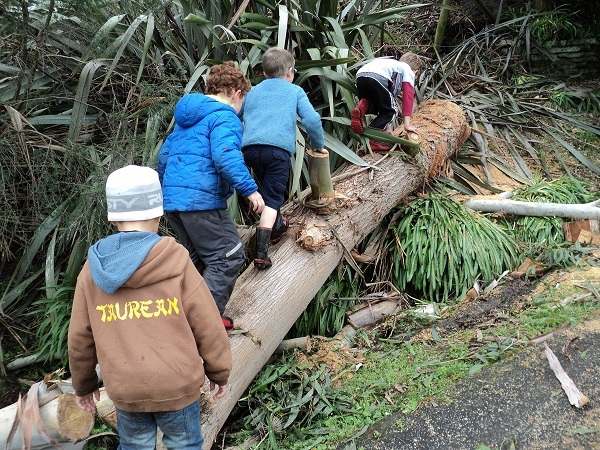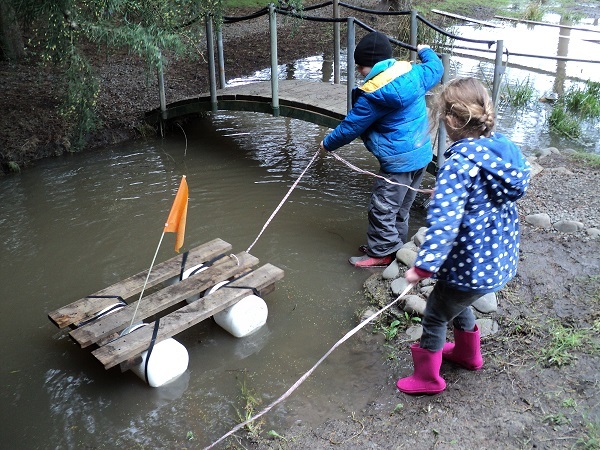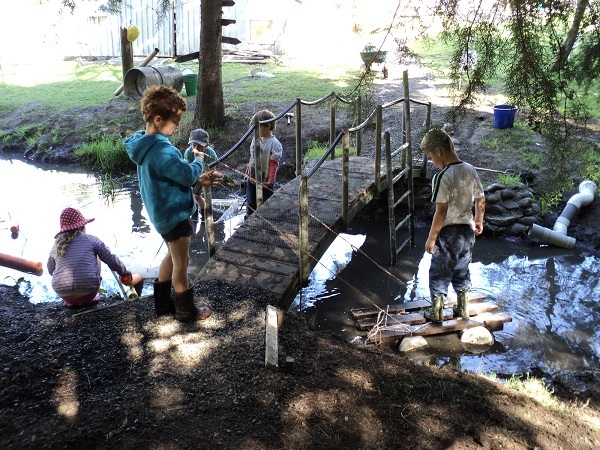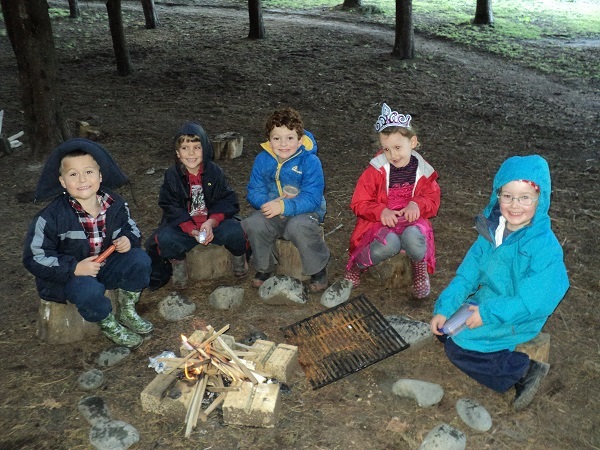Forest School works on the understanding that every child is equal, unique and valuable and should be able to explore and discover for themselves in the natural environment. Originating in Scandinavia, mostly in Kindergartens, the Forest School approach has gained popularity around the world with a variety of age groups and settings.
Longworth Forest, New Zealand, seeks to provide children with safe and semi structured opportunities to experience risk and challenge, to problem solve and enterprise, all at the child’s own pace. It is a child led approach which gives children the power to initiate and drive their own learning, to make meaningful choices and to discover and develop their interests. Through regular outdoor play, children learn to develop positive relationships with themselves and others as well as a bond with nature and an understanding of their place in the natural world.
Longworth Forest was initially established as an opportunity for 5 year old children to transition from an Early Childhood setting into a more formal school environment. Early literacy and numeracy skills were to be taught in a holistic way alongside the self- directed learning. Longworth Forest’s philosophy is that children learn best when they are moving and engaged in meaningful hands on activities. Each day spent in the Forest involves plenty of physical exploration of the natural environment, such as climbing trees, building huts and dams. The children use the natural resources for their creative dramatic play. Real tools are available for use and part of learning is to know how to handle appropriate risks. The adult acts as facilitator, ensuring safety, modelling positive attitude and behaviour and picking up cues from children to extend learning in areas they show interest in.
During the day, each child individually reads with the adult. During a break in play at morning tea, some form of writing occurs. This self- directed writing can take many different forms. Building and making signs for the Forest, writing letters, making lists of ingredients are some favourite literacy activities. At lunch time, numeracy skills become the focus. Numeracy games take part while children are gathered to eat together. All other mathematics – geometry, measurement, statistics are developed during their play without the children even realising. There is no pre-planning, there are many opportunities for the adult to impart knowledge and trigger discussion based on the curiosity of the children, and the natural environment provides endless opportunities for spontaneous science, technology and social science to occur.
To be beneficial, Forest School should happen regularly over a period of time and at the same site. Longworth Forest prepares children for formal education by encouraging them to be self -sufficient, resilient and curious students with a love of learning. Most of the 5 year old children who began at Longworth Forest have gone on to be homeschooled.
Longworth Forest is also open to visits from local city schools. Being able to play freely in a natural environment can be particularly useful for children who experience behavioural issues or have special needs, as they have the freedom to express themselves and to direct their learning in whatever way suits them. The natural environment can also have a calming effect for students with ADHD or autism.
Longworth Education encourages local schools to open up their classroom doors and provide opportunities for outdoor play. Many Teachers visit Longworth Forest in order to gain ideas for developing the outdoor play areas at their school. Longworth Education provides consultation and specialist support throughout New Zealand on Play Based Learning.








